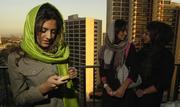Iran Culture
General Attitudes, Personal Appearance and Lifestyle
General Attitudes:
Iranians value education, culture, cleverness, and wisdom. Iranians are hospitable and open to others. They like foreigners as a whole. Many citizens support a more open society and greater integration with the world community.
Personal Appearance:
Iranians dress formally and conservatively. Personal cleanliness is important. Men usually wear Western-style clothing, although some especially religious leaders wear traditional robes and turbans. Women are encouraged to be covered from head to foot in public (only a woman’s hands and face may be visible in public). Younger woman may even let a little hair show on the forehead, and some woman wear makeup.
Greeting:
Proper etiquette during greeting is considered essential in Iran. A handshake is customary. To show respect, one gives a slight bow or nod while shaking hands. A man does not shake a woman’s hand unless she offers it first. Iranians of the same sex often kiss each other on the cheek as a greeting and sign of affection. People generally stand when someone (especially an older or more prominent person) enters the room for the first time and when someone leaves. A typical Farsi greeting is Dorood (Greetings); an appropriate response is Dorood-bar-to (greetings to you). People often use Arabic greetings such as Salaam (peace). A common parting phrase is Khoda-hafez (May God protect you).
Visiting:
Hospitality is a cherished tradition in Iran. Iranian philosophy claim a guest is a gift from (or friend of) Allah (God). Respecting the guest is a way of respecting Allah. Guests therefore are the center of attention in an Iranian home and everything is done to make them feel comfortable. The oldest receives the greatest respect.
Family:
The family unit is strong in Iran and provides its members with a sense of identity, security, and social organization. Relatives remain close. The elderly are respected and cared for by younger members of the extended family. Parents feel a lifelong commitment to children, often providing them with financial support well after marriage. Regardless of their age, unmarried person live with their parents until they marry.


